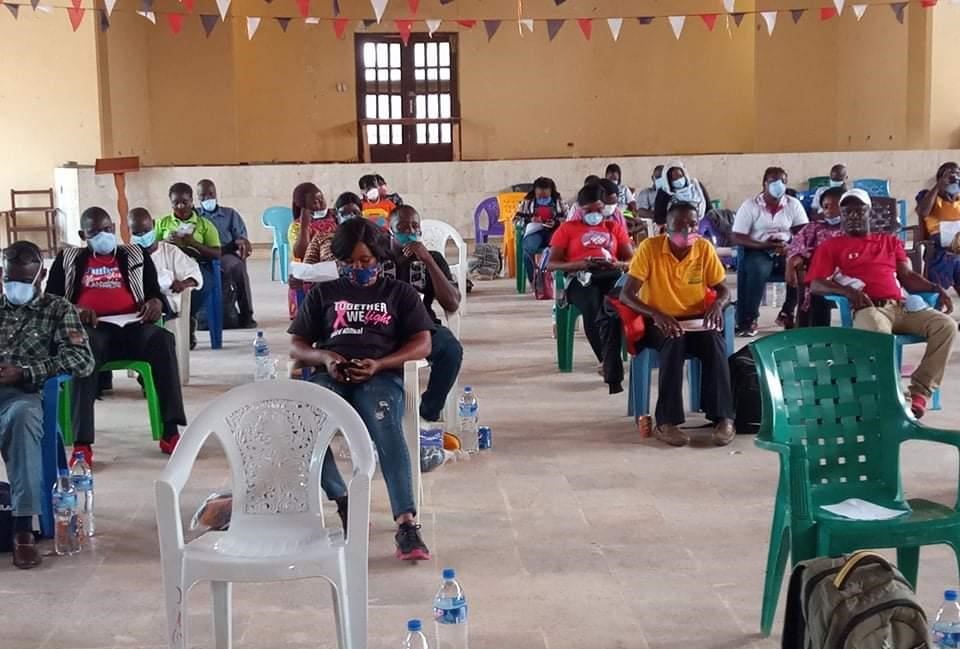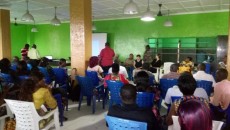SANNIQUELLIE, Nimba – The first phase of training aimed at getting community health workers involved in the COVID-19 fight in Nimba has kicked off, with dozens of trainees gathering in Sanniquellie.
The Partnership for Advancing Community Based Services, PACS, is collaborating with the Nimba County Health Team to conduct county and community level training for county-level trainers, community health services supervisors, community health assistants, and community health volunteers in Nimba on COVID-19 preparedness, prevention, and response.
The July 1 training at Tubman Hall in Sanniquellie also included heads of health facilities and surveillance officers from Sanniquellie and Gbehlay Geh Health districts.
The deputy chief of party for PACS, Isaac Nathaniel Capehart, disclosed that following the Sanniquellie training, the group would roll out the same training in other health districts in Nimba.
Capehart said the goal is to ensure community participation and cooperation in the detection, response, and prevention of COVID-19, with lessons learned from community involvement from the Ebola crisis.
“We work in the six health districts in Nimba and we will be taking the training in each of the districts,” he said. He noted that the training would reach 11 officers in charge of health facilities, 18 community health services supervisors, 192 community health assistants, 445 community health volunteers, 23 community health animal workers, 2 district health officers, 2 district surveillance officers, and 2 representatives from civil society organizations.
Alphanso B. Nuah, who serves as the community health focal person for the Nimba County Health Team, said the county health team was happy to partner with PACS to conduct sets of training aimed at changing the mindset of community dwellers.
He observed that training community health workers was essential in controlling the Coronavirus, as trained community health workers can better educate their communities about the dangers of the disease.
Nuah noted that the introduction of community health volunteers into the country’s health system had helped to drastically reduce the number of cases of tropical diseases such as malaria, pneumonia, and diarrhea in the country, thus relaxing the burden of health facilities.
“The community health volunteers are important in the health system particularly during this pandemic,” Nuah said.
“So as we are training them, they will go back in their respective communities and disabuse the minds of people who still doubt the existence of the virus in Liberia. With this, I think we will speedily eradicate the virus from Liberia.”
The training was sponsored by the World Bank and USAID.
Featured photo by Jerry Myers

